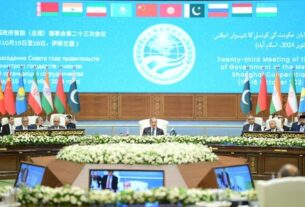1.Oil and Gas
The Oil and Gas Regulatory Authority is a crucial organization that helps keep fuel prices in Pakistan under control (OGRA). The cost of gas is included in this. The OGRA recently proposed an increase in petrol prices of Rs 5.90. Despite its seemingly insignificant nature, this can have a big impact on people’s daily lives. The purpose of this page is to clarify the reasoning behind OGRA’s suggestion, as well as any potential personal and national ramifications.
2.OGRA: What Is It?
The Oil and Gas Regulatory Authority is known by the acronym OGRA. In Pakistan, a government agency determines the price of petroleum products such as diesel and gasoline. OGRA ensures that the prices are reasonable and accurately represent the expenses associated with producing and importing fuel. They take into account many elements, such as global oil prices and taxes, before adjusting the prices.
3.Why Is OGRA Seeking a Price Increase?
For several reasons, OGRA recommended price increases.
Global Oil Prices:
The price of oil on the international market is subject to several factors, such as supply and demand as well as geopolitical happenings. Rising worldwide oil prices have an impact on Pakistan’s gasoline costs as well because the country imports a significant amount of its fuel.
Rupee Value:
The Pakistani Rupee’s value in respect to other currencies, including the US Dollar, affects the cost of importing petroleum. When the Rupee weakens, the cost of importing oil from other countries increases, leading to an increase in gas prices.
The government collects fuel taxes and tariffs, which are then added to the total amount that customers pay.
4.How Do People Get Affected by Price Increases?
A rise in gas prices can impact people’s daily life in a number of ways:
Transportation Costs:
Driving a car, a motorcycle, or any other type of vehicle becomes more expensive when gas prices rise. This implies that people will have to pay more for fuel, which may be difficult for people whose daily activities or employment depend on their cars.
Public Transportation:
As gas prices rise, the cost of using public transportation, such as buses and taxis, also rises. This implies that the cost of everyday commutes for those who use these services will increase.
Prices of commodities:
Fuel-powered vehicles are used to move a lot of commodities. The cost of delivering these commodities rises along with the price of gasoline.
5.How Can Individuals Handle the Price Increase?
While a spike in gas prices can be challenging, there are a few strategies that consumers can use to adjust to the new costs:
Carpooling:
Individuals can reduce their fuel costs by splitting rides with friends, family, or coworkers. Carpooling benefits the environment by lowering the number of cars on the road.
Using Public Transportation: Despite potential price increases, public transportation is still frequently less expensive than driving a car. People can cut down on traffic congestion and save money on fuel by taking the bus or rail.
Driving Sensibly:
Sensibly driving can help people conserve fuel. This include maintaining the vehicle’s condition, traveling at constant speeds, and avoiding abrupt stops and starts. basic tasks include checking the tires
6.How Is Pricing Change Decided by OGRA?
Before recommending a price modification, OGRA carefully evaluates a number of criteria, including:
International Oil Prices:
OGRA keeps an eye on the world oil market and tracks how shifts in oil prices impact Pakistan’s fuel costs.
Exchange Rates:
The Pakistani Rupee’s worth in relation to other currencies is also considered. A decline in the value of the Rupee makes it more expensive to import oil, which can raise prices.
Local Costs:
Within Pakistan, OGRA examines the expenses associated with petroleum distribution, transportation, and refining. These expenditures cover the cost of maintaining transportation infrastructure, paying employees, and operating refineries.
Government Policies:
The pricing of fuel is also influenced by decisions made by the government on subsidies and taxation. Should the government raise
7.How Has the Proposed Increase Been Received?
People and groups have responded differently to the proposed price increase:
Customers:
Concerns about how the rise may impact their daily spending are common. Some people worry that their expenses for products and transportation will increase.
Enterprises:
Enterprises that depend on transportation, such as logistics firms and delivery services, can be worried about the increased expenses. In order to pay for the additional costs, they might need to raise their rates.
Government:
The government might be thinking about how to strike a compromise between the public’s and the economy’s concerns and the necessity for increased pricing. This can entail giving out subsidies or coming up with various strategies to assist them in adjusting to the rise.
Many Pakistanis will be impacted by the significant move proposed by OGRA to increase the price of gasoline by Rs 5.90. Despite being necessary to account for growing global oil costs and other expenses, the hike presents challenges for businesses, the government, and consumers. By understanding the reasoning behind the price adjustment and looking into ways to handle the higher costs, people can more skillfully manage the impact on their daily lives. Some strategies to lessen the effects of growing gasoline prices are carpooling, taking public transportation, and exercising caution when driving. It is vital that individuals in Pakistan remain informed about these advancements and devise tactics to adapt to the novel economic conditions.
یہ بھی پڑھیں Government Announces Gasoline Price Hike by Rs 5.40





